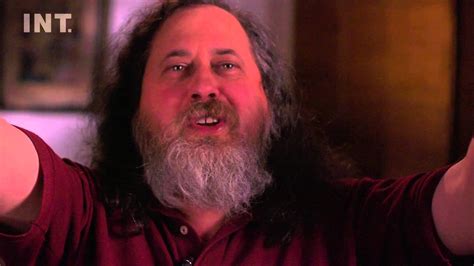Richard Stallman has always been a polarizing figure in the tech community. His staunch advocacy for free software often puts him at odds with mainstream corporate practices. While some may find his views eccentric or even bizarre given today’s emphasis on security, a closer look at his philosophy reveals a deep commitment to individual user autonomy and freedom. The comments on discussions about Stallman often highlight how his ideas, although conceived in a different era, still resonate in today’s technology landscape.
One significant area where Stallman’s philosophy stands out is the debate over user control versus administrative control. Commenters often point out that what might seem like a fight against standard security practices is, in Stallman’s view, a battle against user disenfranchisement. GNU’s decision not to support the ‘wheel’ group, which grants administrative privileges to a defined set of users, is a case in point. Stallman believed that every user should have the potential to become root, reflecting his broader ethos that users should have the utmost control over their computing environments. This belief, though idealistic to some, emphasizes an egalitarian approach to user rights.
Over the decades, Stallman has amassed both fervent supporters and vocal critics. Comments often portray him as a ‘resident lunatic’ or ‘socrates of our times,’ underscoring the dichotomy of opinions around him. However, these extremes bring out the passion he inspires – whether one agrees with him or not, it’s difficult to deny the purity of his vision. A YouTube video linked in the comments humorously underscores his unique personality, yet there’s an underlying respect for his unfaltering conviction. To many, Stallman’s unyielding stance on software freedom seems out of touch, especially when taken against the backdrop of modern security challenges. Yet, his focus on unbridled user empowerment has aged remarkably well in certain circles.
In the realm of source code accessibility, Stallman’s arguments seem especially salient. The debate between free software and open source, often muddled in popular discourse, hinges on the practical versus legal ability to modify software. Comments reflect a nuanced understanding of this: merely having the legal right to modify software isn’t sufficient unless the code is also readily available and understandable. Stallman’s emphasis on source code as the cornerstone of software freedom was not without reason. Amidst corporate co-opting of ‘open source’ as a buzzword, discussions in the comment threads highlight the importance of not losing sight of what truly constitutes ‘free software.’ The code must be readily usable, modifiable, and shareable to offer genuine freedom to its users.
Nevertheless, the real-world application of Stallman’s principles can be contentious. In today’s environment, where multiple layers of digital security are necessary, some commenters argue that his vision might be impractical or outdated. Yet others point out that Stallman’s ideas were formed in a context where computing power was more of a communal resource at institutions like MIT’s AI Lab. Those were spaces where technical know-how was a badge of entry, and systems were built and maintained by the very users who were part of that ecosystem. Stallman’s relentless push for transparency and community-driven development was less about anarchism and more about preserving a culture of shared responsibility and openness—principles which many feel are worth holding on to even today.
In conclusion, while Richard Stallman’s views may appear anachronistic to some, given the heavy focus on corporate-controlled digital ecosystems today, they underscore vital conversations about software freedom and user rights. His insistence on the availability of source code and the right to modify it isn’t just about technicalities but about a larger, philosophical stance on autonomy and control in the digital age. As the tech landscape continues to evolve, reflecting on these ideas might offer significant insights into creating a more balanced and equitable technological future. For anyone interested in these debates, a dive into Stallman’s principles and the lively discussions they spark can be both enlightening and profoundly challenging.


Leave a Reply